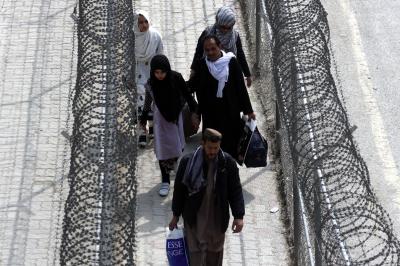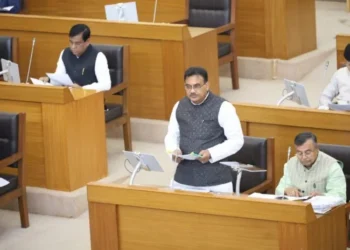Islamabad, Sept 3:
Pakistan has begun detaining Afghan migrants whose residency permits expired earlier this week, even as heavy congestion has been reported at key border crossings such as Torkham, local media reported on Wednesday.
According to Afghan news agency Khaama Press, Pakistan’s Interior Ministry has issued directives to arrest and deport Afghan migrants lacking valid documents. Law enforcement agencies have been asked to provide daily updates on detentions. Police teams have been deployed in major cities, including Rawalpindi, where search operations have already led to the arrest of several Afghan nationals.
Pakistan has been implementing a plan to deport approximately 1.4 million Afghans holding Proof of Registration (PoR) cards, despite repeated appeals from international organisations to halt deportations. In addition to PoR holders, nearly 800,000 Afghans with Afghan Citizenship Cards—who have overstayed or are residing illegally in Pakistan—are also facing expulsion, officials said.
The crackdown comes amid growing reports of overcrowding at border points. On Monday, long queues and congestion were reported at the Torkham border crossing as Afghan families rushed to leave Pakistan. Humanitarian experts have warned that mass deportations could expose Afghan migrants to severe economic hardship, social instability, and increased vulnerability to exploitation along the border.
International organisations have urged both Pakistan and Afghanistan to engage in dialogue to ensure the safe and humane treatment of Afghan migrants. The United Nations High Commissioner for Refugees (UNHCR) has expressed concern that deportations could worsen Afghanistan’s ongoing humanitarian crisis.
Earlier in August, Pakistan’s Interior Ministry had announced that the repatriation of Afghan nationals holding PoR cards would begin on September 1, unless they opted for voluntary return. The decision followed a high-level meeting where officials cited rising security concerns and mounting pressure on national resources as reasons for the move.
The Interior Ministry said the repatriation process will be carried out in collaboration with relevant international agencies, including the Taliban-led interim government in Kabul, UNHCR, and other partners, to ensure coordination and support during the return process.


















